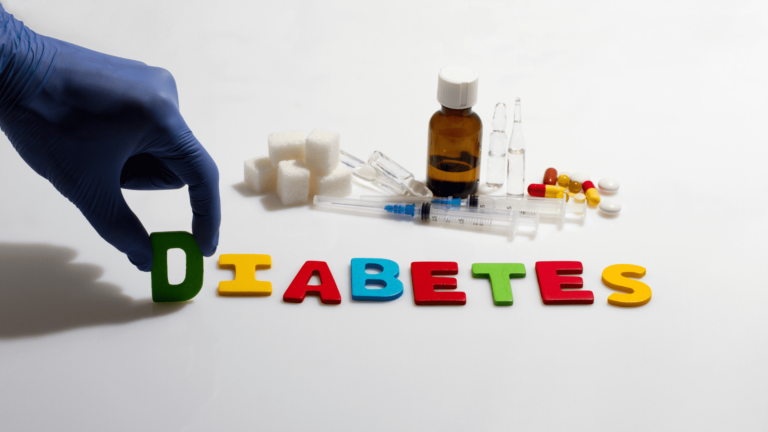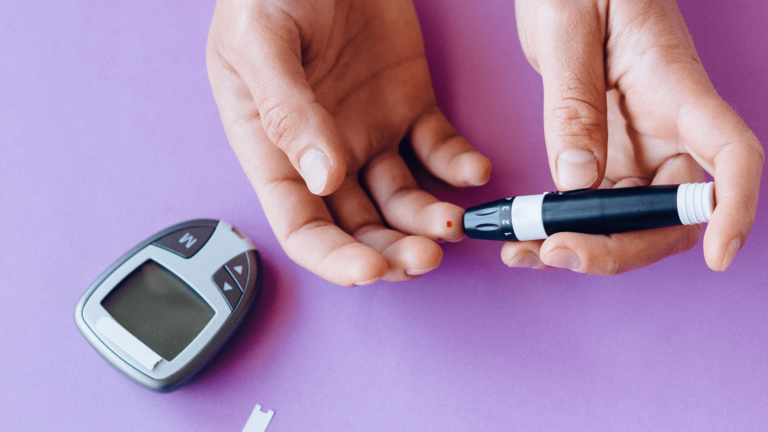Diabetes means your body cannot break down glucose, otherwise known as your blood sugar, and turn it into energy. This is because people with diabetes don’t have enough insulin to carry the glucose through their cells. While there is no cure for diabetes, you can live with the condition either through insulin injections or a healthy lifestyle.
What Are The Different Types of Diabetes?
There is Type 1 and Type 2. If you have Type 1, your immune system attacks and destroys insulating-producing cells. If you have Type 2, your body doesn’t produce enough insulin. Alternatively, your cells might not react to insulin at all.
Type 2 is more common, with 90% of diabetic adults in the UK living with Type 2. However, there is another diabetes type that is less well-known. As detailed by the Centers for Disease Control and Prevention, you can also develop gestational diabetes while pregnant.
What Are The Risks of Diabetes?
If left untreated or if improperly managed, diabetes can cause many complications, including:
- Eye problems causing blindness
- Foot problem resulting in amputation
- Heart attack
- Stroke
- Kidney failure
- Nerve damage
- Gum disease
To minimise risk of complications, it’s important to reduce high blood sugar levels and keep your blood sugar levels in check. High levels of glucose can complicate your condition. For those without diabetes, high blood sugar can put you at a higher risk of developing diabetes.
What Are The Signs of Diabetes?
There are several warning signs of diabetes. If you experience any of these main symptoms, book an appointment with tapGP as soon as possible:
- You feel very thirsty and cannot seem to quench that thirst no matter how much you drink.
- You pee more often than usual, particularly at night
- You feel fatigued and tired
- You experience sudden weight loss, especially in muscle mass
- You experience itching around your genitals or get thrush frequently
- You heal more slowly than others
- You have blurred vision
It’s important to note that, though Type 1 diabetes symptoms come on quickly, Type 2 can develop over the years. To determine if you have Type 2 diabetes, it’s recommended that you get a diabetic eye test.
Diabetic eye screening is an effective way to test if someone has diabetes. In the UK, it’s recommended that you take a diabetic eye test at least once a year. The test takes 30 minutes and can help detect diabetes before other symptoms occur. It’s also a good way to minimise the risk of diabetic retinopathy, which could lead to sight loss if untreated.
How Do I Manage Diabetes?
If you have Type 1 diabetes, then your only option is to use insulin injections since you don’t have any insulin-producing cells of your own. If you have Type 2, you can adopt a healthy lifestyle that includes a balanced diet and regular exercise. With Type 2, you will need to take a blood test regularly to determine glucose levels, even with healthy living, as your blood sugar levels can fluctuate.
Type 2 does get progressively worse, meaning patients may eventually need to take additional medication. This medication is usually in tablet form. If you are ever concerned about your diabetes, it’s important to seek medical advice. Our GP out of hours service will connect you to a trained NHS doctor or clinician by phone or video instantly, so you can get prescriptions or referrals as soon as you need them.
Discuss Your Diabetes Symptoms with Your GP
It is always a good idea to discuss any of these symptoms you may have been experiencing with your general practitioner. To ascertain the origin of your symptoms, your GP can access your medical history and symptoms to determine the cause of your symptoms from professional evaulation and examination.
With the right course of care, Type 2 diabetes can be prevented or managed. You run a higher chance of developing Type 2 diabetes if someone in your family has diabetes, such as your parents. Please check your symptoms and visit your doctor if you are experiencing any of the symptoms listed above.



